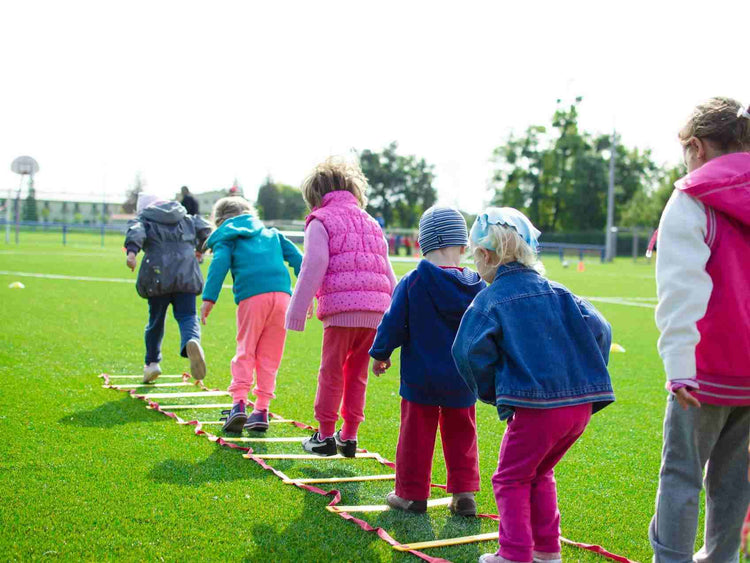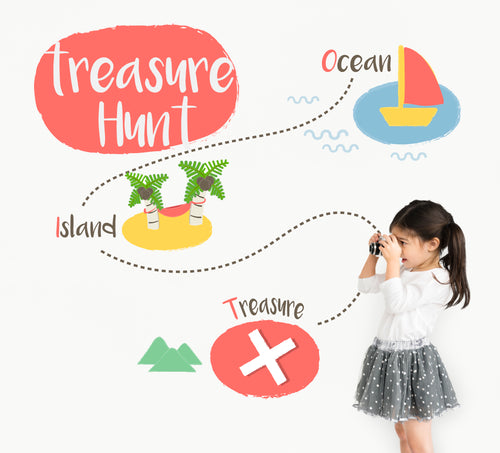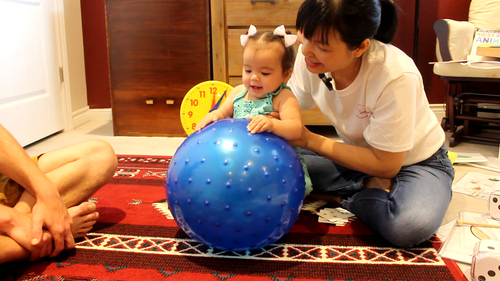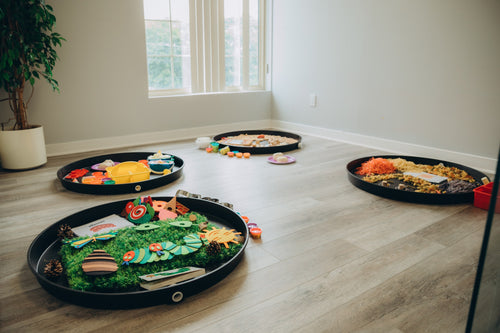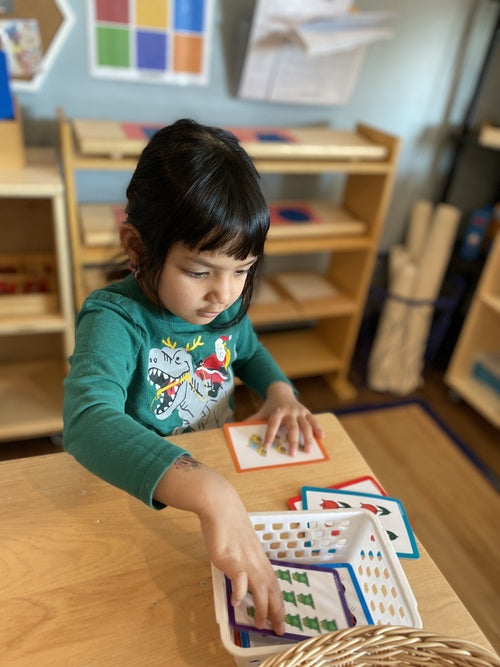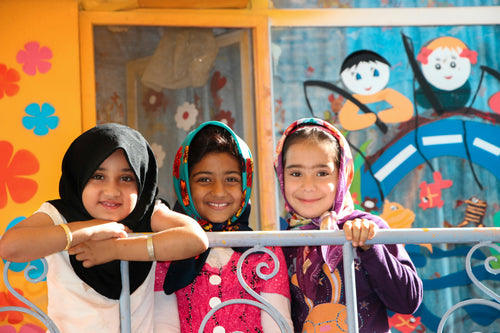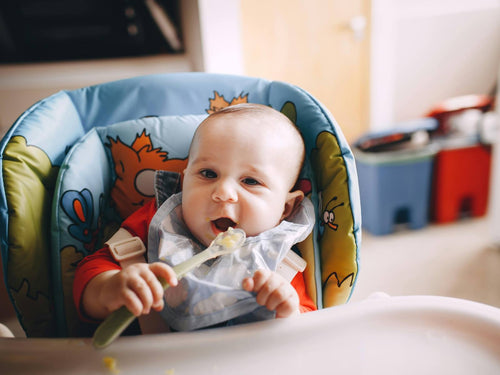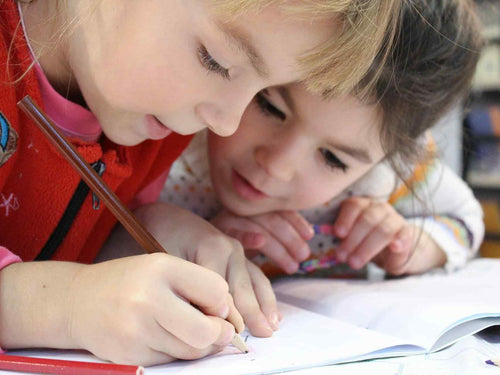Early childhood is a crucial period for cognitive, social, and emotional development. Understanding how babies learn can help us create supportive and enriching environments that foster optimal growth. This article will explore how babies learn, the brain functions involved, and strategies to enhance their learning experiences. Additionally, we will propose 7 engaging outdoor learning for preschoolers and their benefits.
Part 1: How Do Babies Learn?
Babies were gifted with a remarkable capacity for learning since the begining. From the moment they enter the world, their brains are rapidly developing, creating neural connections at an astonishing rate. These connections, also known as synapses, form the foundation for all learning and cognitive processes. Here are 3 ways babies learn in their very first years.
1. Neural Plasticity
Neural plasticity was the brain's ability to change and adapt in response to surrounded environment. In the early years, the brain is highly plastic, making it a prime time for learning. Positive experiences and stimulation can strengthen neural connections, while negative experiences can weaken them. Therefore, providing a rich and nurturing environment is crucial for optimal brain development.
2. Sensory Experiences
Babies learn about the world primarily through their senses. Touch, sight, sound, taste, and smell all play a vital role in how they interpret and understand their surroundings. For example, when a baby touches a soft toy, their brain processes the texture, temperature, and even the color of the toy, helping them build a mental picture of their environment. Allow outdoor activities not only help them connect more with their sense but also strengthen their immune systems.

3. Repetition and Reinforcement
Repetition is a key component of learning for babies. By repeatedly engaging in activities, babies reinforce neural pathways, making certain skills and knowledge more permanent. For instance, repeating the sounds of words helps babies learn language, while practicing crawling helps them develop motor skills.
How to improve your baby’s learning ability
1. Responsive Interaction
Engaging with babies in a responsive and interactive manner is essential. Talking, singing, and making eye contact with them helps build language skills and emotional connections. Responding to their cues and needs also fosters a sense of security and trust, which is fundamental for learning.
2. Providing Varied Experiences
Exposing babies to a wide range of experiences stimulates their senses and encourages cognitive development. This can include activities such as reading books playing with different types of toys, and exploring new environments. Each new experience helps build a broader understanding of the world. Finding more about preschoolers growth milestone here.
3. Encouraging Play
Play is a natural and effective way for babies to learn. Through play, they develop motor skills, problem-solving abilities, and social interactions. Simple activities like stacking blocks, playing peek-a-boo, and exploring toys with different textures can have a significant impact on their development. Playing is the best way for a child to learn and grow.
4. Creating a Safe and Stimulating Environment
A safe and stimulating environment is crucial for babies to explore and learn. Make your house safe to play and providing age-appropriate toys and materials can encourage independent exploration. Additionally, creating a predictable routine helps babies feel secure and understand the world around them.
Part 2: Outdoor Learning for Preschoolers
Outdoor activities offers numerous benefits for physical, cognitive, and social development. Here are seven suggestion for your ideas and the benefits they offer:
1. Nature Walks
Organize regular nature walks where preschoolers can explore local parks, forests, or gardens. Encourage them to observe plants, animals, and insects, and collect natural items like leaves, rocks, and flowers.
Nature walks stimulate curiosity and observation skills, enhance vocabulary, and foster a love for the environment. The physical activity involved also promotes gross motor development and overall health. Outdoor learning for preschoolers through nature walks offers a holistic approach to development.
2. Gardening
Set up a small garden where preschoolers can plant seeds, water plants, and watch them grow. Teach them about different types of plants and the importance of caring for the environment.
Gardening teaches responsibility, patience, and the basics of plant biology. It also provides sensory experiences and fine motor skill development through activities like digging and planting. This type of activity encourages environmental stewardship.
3. Outdoor Art Projects
Encourage preschoolers to create art using natural materials like leaves, twigs, and stones. They can make collages, leaf rubbings, or even paint with mud and water.
Outdoor art projects cab enhance creativity, improve motor skills, and foster an appreciation for nature. These activities also provide a unique way for children to express themselves and develop artistic abilities. Incorporating art into outdoor learning for preschoolers can make education more engaging.

4. Scavenger Hunts
Organize scavenger hunts where preschoolers search for specific items in nature, such as certain types of leaves, rocks, or insects. Provide simple clues or pictures to guide them.
Scavenger hunts promote problem-solving skills, teamwork, and attention to detail. They also make learning fun and engaging, encouraging children to explore and discover their surroundings. This form of outdoor learning for preschoolers blends play with education.
5. Water Play
Set up a water play area with buckets, cups, and toys. Allow preschoolers to experiment with pouring, splashing, and floating objects.
Water play enhances sensory experiences, fine motor skills, and understanding of basic scientific concepts like buoyancy and volume. It also provides a refreshing and enjoyable way for children to play and learn outdoors. Water play can be both fun and educational.
6. Outdoor Storytime
Hold storytime sessions outside, where preschoolers can listen to stories, act out scenes, or create their own tales inspired by nature.
Outdoor storytime encourages imagination, language development, and a love for reading. Being in a natural setting can also make the experience more memorable and engaging for children.
7. Physical Activities and Games
Organize physical activities and games such as running races, obstacle courses, and ball games. Incorporate elements of nature, like using sticks as hurdles or leaves as markers.
Physical activities and games promote gross motor development, coordination, and social skills. They also help children develop a healthy attitude towards physical fitness and teamwork. Outdoor learning for preschoolers that includes physical activity supports overall well-being.
Understanding how babies learn and providing enriching outdoor learning activities for preschoolers are essential for their overall development. By engaging in responsive interactions, offering varied experiences, and encouraging play, parents and educators can support babies' brain development and learning. Outdoor activities such as nature walks, gardening, and scavenger hunts provide preschoolers with valuable opportunities to explore, discover, and grow. These activities not only enhance cognitive and physical skills but also foster a lifelong love for learning and the natural world.
At Smartizen, we are committed to creating nurturing and stimulating environments that help children thrive and reach their full potential.
Book your free trial class with us here to unlock your child’s full potential.

